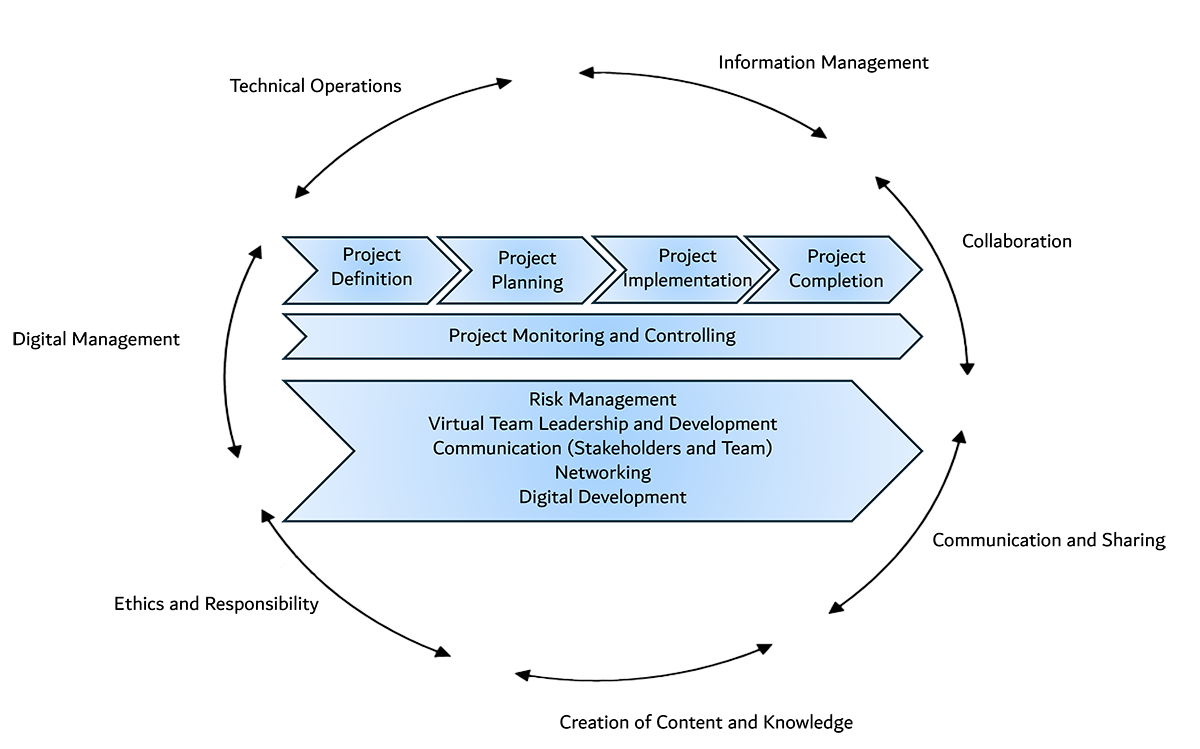Future Skills – What Companies Need to Know Now
In a rapidly evolving work environment shaped by digitalization, artificial intelligence, and modern technologies, new competencies are in demand: Future Skills. These include not only digital competencies but also social skills such as emotional intelligence and collaborative work. Companies that proactively train their employees and prepare them for the challenges of tomorrow’s workplace gain long-term competitive advantages. Learn why Future Skills are essential in project management and how to develop them effectively.
Our work environment is changing at an incredible pace. Digitalization, artificial intelligence (AI), remote work, and hybrid teams challenge us daily. But what do project managers really need to succeed in this dynamic setting? This question was the focus of Dr. Jessica Nagel’s dissertation. At the core of her research lies a competency that is frequently mentioned but rarely clearly defined: Digital Literacy – the ability not only to understand digital technologies but also to use them meaningfully and purposefully in everyday project work. This digital competency is part of what is now known as Future Skills, considered key qualifications for the workplace of the future.
Why Future Skills Are Key to a Changing World of Work
Future Skills refer to competencies that are essential in tomorrow’s working world. These include confident use of digital tools, the ability to self-organize, collaborative work, and a strong sense for managing information overload. Dr. Nagel’s research revealed that it’s not just technical skills that matter – but especially social and personal competencies. These include emotional intelligence, communication skills, and the ability to foster trust and closeness in virtual teams. In an increasingly networked world, these skills are in demand across all industries.
A central result of Dr. Nagel’s dissertation is the development of a Competency Framework for Digitally Structured Project Management. The graphic below illustrates the seven dimensions of competence necessary for successful project execution in digital environments:
The seven dimensions include:
- Information & Data Management: Confident handling of digital data and information
- Virtual Collaboration: Effective teamwork across digital channels
- Digital Communication: Targeted communication in virtual environments
- Knowledge and Content Creation: Using digital tools to generate knowledge
- Ethics, Responsibility, and Security: Awareness of data protection, ethical considerations, and digital security
- Digital Management: Planning, controlling, and monitoring projects using digital tools
- Technical Competence: Understanding and applying technological tools in project management
The visualization also shows how these dimensions are linked to typical areas of activity such as project definition, planning, execution, and risk management. The model forms the basis for deriving Future Skills in project management.

